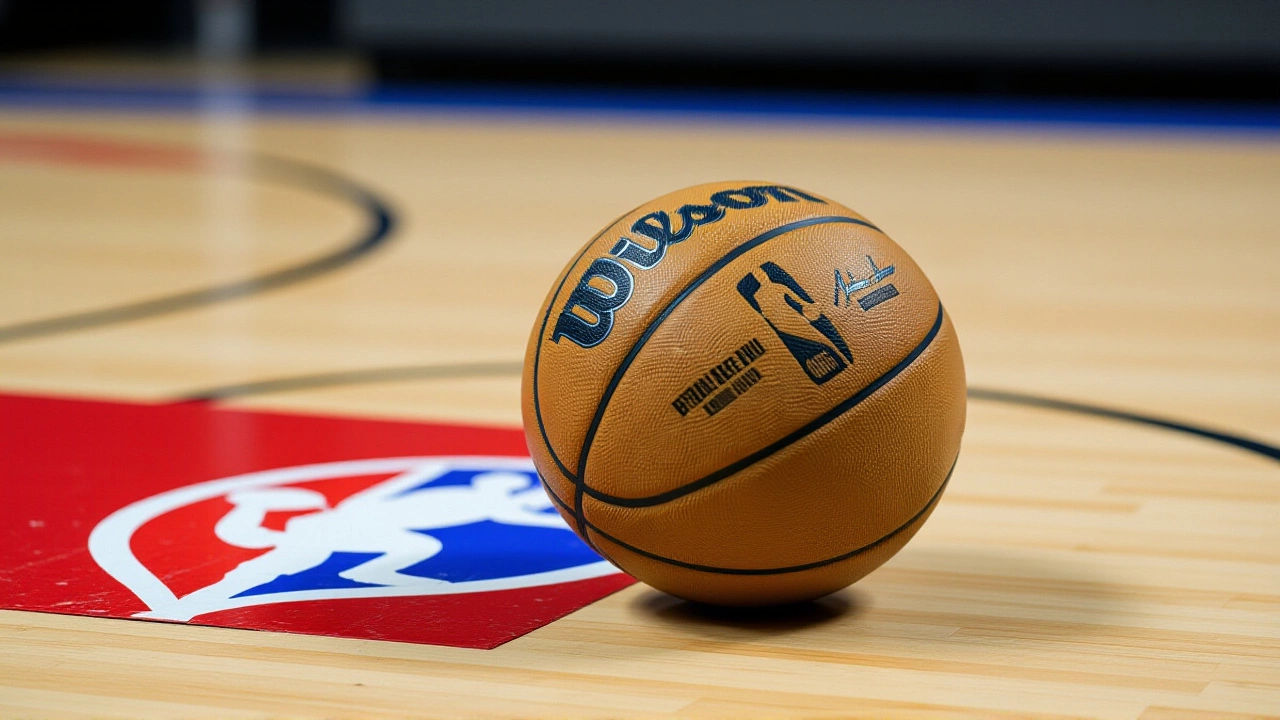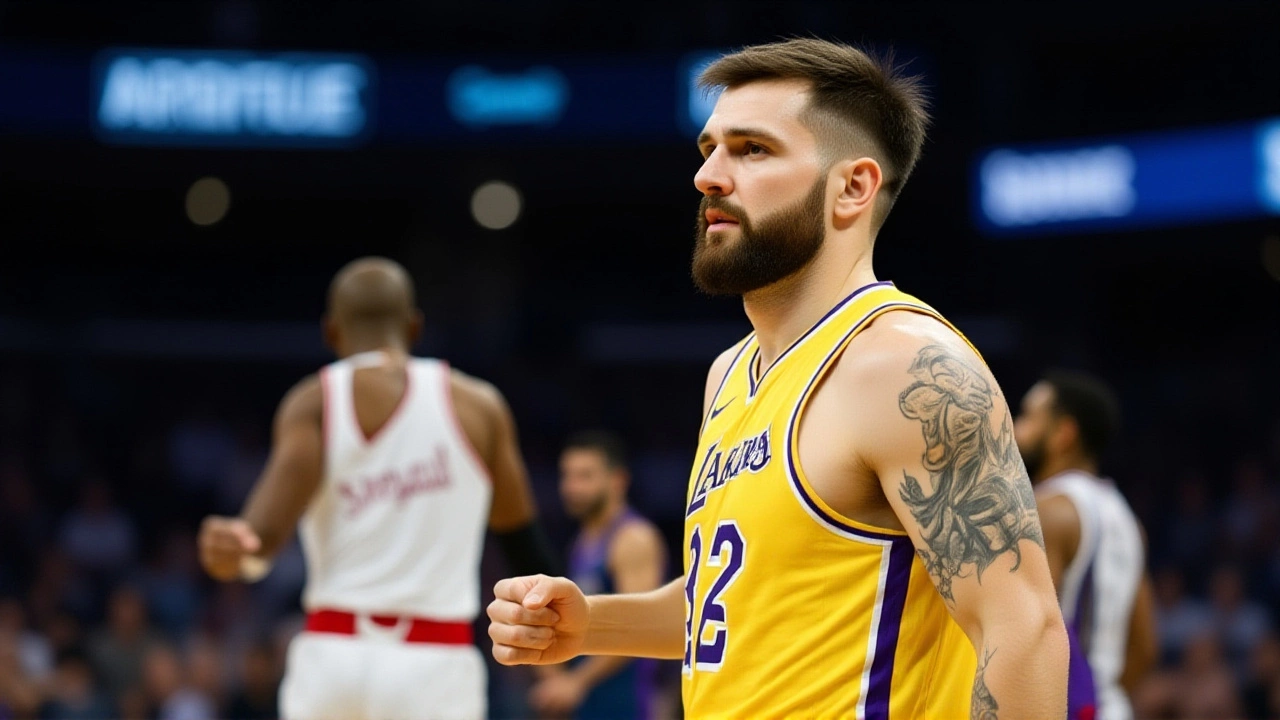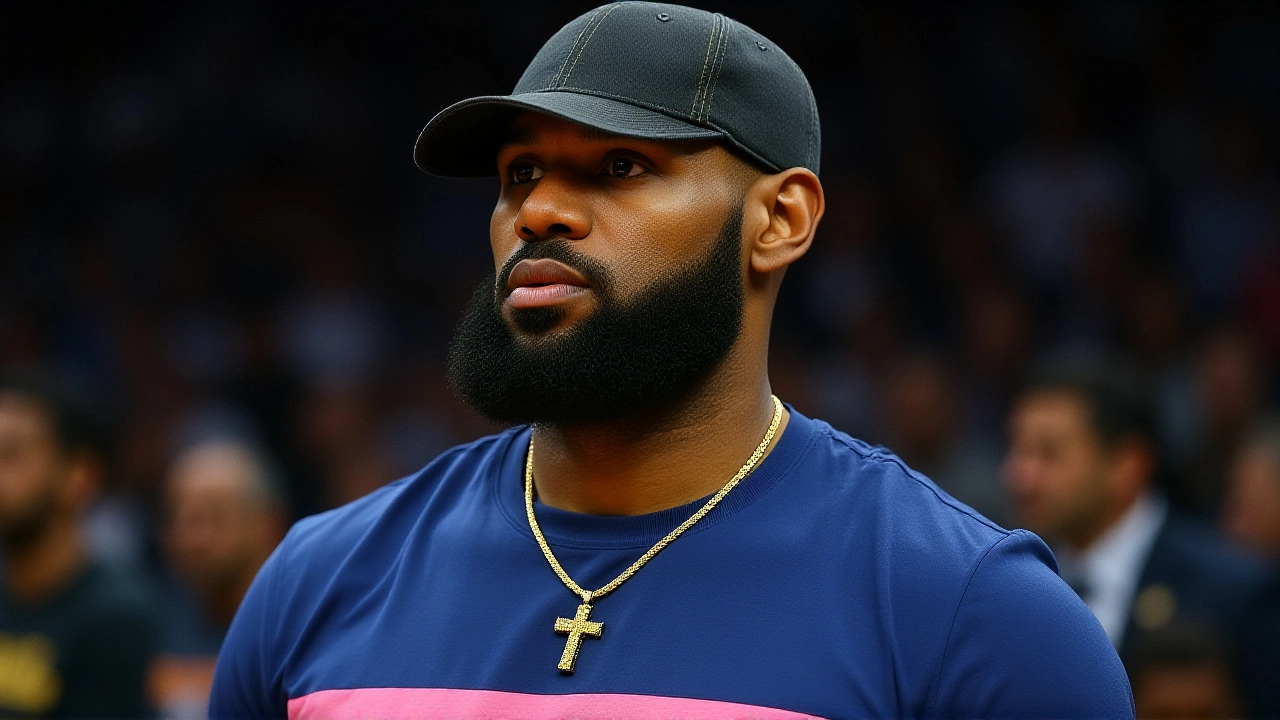When the Los Angeles Lakers took the floor at Target Center on October 29, 2025, they weren’t just missing stars—they were missing their entire offensive engine. With LeBron James, Luka Dončić, Marcus Smart, and Gabe Vincent all sidelined by injuries, the Lakers’ lineup looked more like a developmental squad than a Western Conference contender. Yet, somehow, they won. 116-115. On the road. With a buzzer-beater. And it all came down to one guy nobody saw coming.
The Night the Bench Became the Stars
The Lakers entered the game with a 3-2 record, but the injuries were no joke. James, 40, was nursing a lingering calf strain. Dončić, 26, was still recovering from a high ankle sprain suffered against Phoenix. Smart and Vincent, both critical playmakers, were out with separate hamstring issues. The roster shuffle forced coach Darvin Ham to start rookie guard Dalton Knecht and plug in backup center Jaxon Hayes, returning from a knee injury. No one expected this to be anything but a loss. Not even the fans in Minneapolis, who packed Target Center for what was supposed to be a Timberwolves statement game. But then came Austin Reaves. The 26-year-old shooting guard, once considered a depth piece, turned into the Lakers’ entire offense. He scored 28 points, dished out a career-high 16 assists, and hit the game-winning 12-footer with 0.8 seconds left. It wasn’t just the shot—it was how he got there. Reaves drove into double teams, kicked to open shooters, and ran pick-and-roll with DeAndre Ayton like he’d been doing it for years. He wasn’t just playing—he was orchestrating.LaRavia’s Perfect Night and Ayton’s Anchor Role
Jake LaRavia, 25, had the most efficient game of his NBA career: 27 points on 10-of-11 shooting. He hit every mid-range jumper, every corner three, every putback. One fan in the stands reportedly yelled, “Barabia’s got a gun!”—a misheard nickname that quickly went viral. LaRavia didn’t celebrate after his shots. He just nodded, like it was expected. And maybe it was. The Lakers’ coaching staff had quietly been pushing him as a breakout candidate since training camp. DeAndre Ayton, 27, anchored the paint with 17 points and 10 rebounds, holding his own against Julius Randle’s physicality. He didn’t need to score much—he just needed to be there. And he was. Every time Minnesota tried to cut the lead, Ayton was the last line of defense. His presence allowed Reaves to play without fear of collapse.Timberwolves’ Fury and the 14-2 Run That Almost Was
Minnesota had no business winning. But they did. Julius Randle, 30, dropped 33 points with a dozen free throws and a series of vintage post moves that looked like he was playing in 2021. Jaden McDaniels added 30 points and seven rebounds, hitting clutch threes and locking down Reaves on the perimeter. Down 112-101 with four minutes left, the Timberwolves unleashed a 14-2 run that turned Target Center into a roaring cauldron. Randle’s finger roll with 10.2 seconds left gave Minnesota a 115-114 lead. The Lakers called timeout. Everyone expected them to go to Ayton. Or LaRavia. But Reaves, still breathing hard, motioned for the ball. He dribbled right, faked a drive, stepped back, and rose over McDaniels’ outstretched arm. The ball kissed the glass. Swish. The arena fell silent. Randle stared at the scoreboard. McDaniels dropped his head. And Reaves? He just walked back on defense, like he’d done this a hundred times before.
What This Means for the Lakers’ Season
The win improved the Lakers to 3-2 overall and 2-0 on the road, putting them second in the Pacific Division behind Golden State. But more than the record, this game redefined their identity. They aren’t just LeBron’s team anymore. They aren’t even Dončić’s team. They’re Reaves’ team now—when it matters. His scoring run leading into this game was historic: 51 points against Sacramento on October 26, then 41 against Portland two nights later. Three games. 120 points. That’s not luck. That’s a player stepping into a void—and refusing to let it swallow him. The Lakers face Memphis on Friday. James is still out. Dončić’s return date is uncertain. But Reaves? He’s playing like he’s never going to sit down again.Timberwolves’ Confusion and the Edwards Factor
The real story for Minnesota might not be the loss—it’s what happened after. Anthony Edwards, their 23-year-old All-Star, was sidelined with a sprained ankle, and the team looked lost without him. After the final buzzer, Edwards sat in the middle of the bench, chatting with teammates, even cracking jokes with LaRavia, who’d been trash-talking him all night. “He’s got a big mouth,” Edwards reportedly told reporters. “But he’s got the game to back it up.” That’s the thing about this game: it wasn’t just about who won. It was about who showed up when no one expected them to.
What’s Next?
The Lakers play Memphis on October 31. The Timberwolves head to Charlotte on November 1. But the real question isn’t about the next game—it’s about the next month. Can the Lakers survive without their stars? Can Reaves keep this up? And if Dončić returns, does he fit alongside a player who just carried the team for three straight games? The NBA is full of surprises. But few were as unexpected—or as beautifully executed—as this one.Frequently Asked Questions
How did Austin Reaves manage to perform at such a high level without LeBron or Dončić?
Reaves thrived because the Lakers’ offense shifted to a pick-and-roll-heavy system centered around him and DeAndre Ayton. With no primary ballhandlers, Reaves took on playmaking duties, averaging 16 assists—his career high—by reading defenses and finding open shooters like Jake LaRavia and Dalton Knecht. His three-game scoring explosion (51, 41, 28 points) shows he’s adapted to a lead role, not just filling in.
Why was the Lakers’ 20-point lead nearly blown?
Minnesota’s defensive intensity, led by Jaden McDaniels and Julius Randle, forced turnovers and hit clutch threes during a 14-2 run in the final four minutes. The Lakers’ depleted bench, missing defensive specialists like Marcus Smart, couldn’t match the Timberwolves’ energy. Reaves’ late-game heroics were the only thing that stopped the collapse.
What’s the impact of this win on the Lakers’ playoff chances?
This win proves the Lakers can win without their stars, which is critical for surviving the long season. At 3-2, they’re firmly in the top six of the Western Conference. If Reaves maintains this level and James returns healthy, they could be a top-three seed. But if injuries persist, their depth will be tested—especially in back-to-backs and road games.
Is Jake LaRavia now a key piece for the Lakers?
Absolutely. His 10-of-11 shooting night wasn’t a fluke—he’s been efficient all season. With his size, shooting range, and unselfishness, LaRavia complements Reaves perfectly. He’s no longer a role player; he’s a starter-caliber forward who could become the Lakers’ third offensive option if Dončić returns to a bench role.
How does this loss affect the Timberwolves’ standing in the Northwest Division?
The loss dropped Minnesota to 2-3, fifth in the Northwest, behind Oklahoma City (5-0), Denver (3-1), Portland (3-2), and Utah (2-2). With Anthony Edwards still out, they lack a true closer. Their bench, while deep, lacks consistency. Unless Edwards returns soon and they find a secondary scorer, they risk falling out of playoff contention despite their talent.
Could this game be a turning point for Austin Reaves’ career?
Without a doubt. Reaves went from a fringe rotation player to a franchise cornerstone in three games. He’s now averaging 40 points per game over his last three, with 14 assists per game. If he sustains this, he’ll be an All-Star candidate. Even if the stars return, his value just skyrocketed—he’s no longer a backup. He’s the guy who kept the Lakers alive when no one else could.
